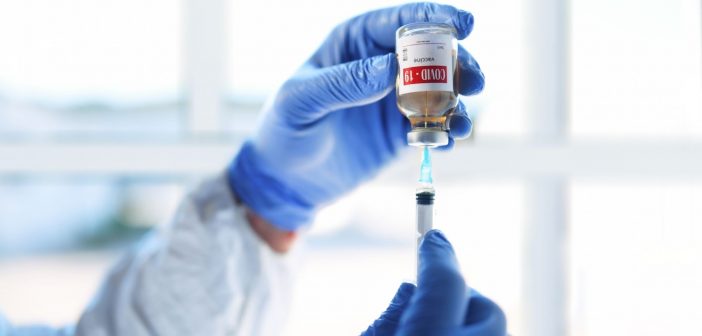Ahmed Elewa, freelance scientist on Kolabtree, provide a rundown of the top 15 startups worldwide working on the COVID-19 vaccine.
When the National Institutes of Health met with pharma companies to accelerate COVID-19 vaccine development, all the big names where there; and they delivered. Now, multiple vaccines have completed clinical trials and are being administered worldwide. Most notable are vaccines from Pfizer (two shots, 95% effective), Moderna (two shots, 95% effective), Novavax (two shots – 89% effective), Johnson and Johnson (single-shot 57-72% effective) and AstraZeneca (two shots – 62% effective). However, despite several vaccines being available, the story isn’t over yet and several challenges remain. For example, Pfizer’s vaccine needs to be kept at -80 °C for long-term storage, and Moderna’s at -20 °C. The need for a ‘cold chain’ to allow for vaccine distribution is a logistical hurdle that complicates vaccination. And what if the virus mutates to variants that are not recognized by current vaccines? And how can we ensure that everyone has access to vaccination?
Startups have risen to meet these challenges and are designing vaccines that do not rely on cold storage, are effective against future variants and can reach people throughout the world, not just in wealthy countries. Here are 15 startups (in alphabetical order) that are at the forefront of the race to vaccinate the world against COVID-19.
Top 15 COVID-19 vaccine startups in the world
1. Aivita Biomedical
Aivita Biomedical is developing a COVID-19 vaccine with a personal twist. The vaccine (AV-COVID-19) is a patient-specific dendritic cell vaccine. This means that a blood sample is first extracted from a patient and the blood is enriched for monocytes, a type of white blood cell that plays a role in innate immune response. The monocytes are differentiated into dendritic cells, an immune messenger cell. Next, SARS-CoV-2 antigens are loaded onto the dendritic cells and after incubation, the vaccine is administered to the same patient who gave that blood sample. This means that the vaccine is personalized and, perhaps as important, the process can be done in minimally-equipped laboratory settings. If successful, this offers a potential for rapid scalability and mass distribution.
HIGHLIGHTS:
- Founded: 2016
- Kind of vaccine: Recombinant
- Innovation: Patient-specific
- Funding received: $56.2M (Series B $52.5M, Series A $2M Research Grant $1.7M)
- Collaborations: California Technology Ventures, Hoag Memorial Hospital, Sue &. Bill Gross Stem Cell Research Center
- Stage of Development: Phase 2 (Indonesia)
2. Baseimmune
Baseimmune is a biotech startup that uses machine learning to turn big data in genomics, proteomics, and clinical data into information that can be incorporated into vaccine design. As a discovery phase biotech, Baseimmune offers their antigen discovery services and develops broad-spectrum vaccines against highly variable pathogens. The startup has five antigens in various stages of development. Earlier this year, the startup closed a £685,000 investment, led by European University VC fund and Creator Fund. Their plan now is to hire a few more staff and find a big biotech partner to work with on a COVID-19 vaccine.
HIGHLIGHTS:
- Founded: 2019
- Kind of vaccine: Computational
- Innovation: Machine learning and big-data
- Funding received: £685,000 (European university VC fund and Creator Fund)
- Collaborations: Vaccitech
- Stage of Development: Early development
3. BioNTech
If you’ve heard about COVID-19 vaccines, then you’ve probably heard of BioNTech. This German company went from startup to superstar last year when its vaccine, developed in collaboration with Pfizer passed all clinical trials. The company went public in October 2019 and is currently worth over $27B. Like many mRNA vaccine companies, BioNTech was initially focused on cancer therapy, which benefits from personalized immunotherapy. However, the pandemic led the company to shift their focus to meeting the global need for a COVID-19 vaccine. BioNTech’s technical expertise combined with Pfizer’s infrastructure for large scale vaccine production produced one of the first vaccines to pass clinical trials and become administered worldwide. Though no longer a startup, BioNTech is mentioned here because it is a truly inspiring story of how a small company was able to attract significant investments (over $1B) and eventually produce a solution that saves lives.
HIGHLIGHTS:
- Founded: 2008
- Kind of vaccine: mRNA
- Innovation: mRNA vaccine technology
- Funding received: $1.5B (Current market capitalization $27.5B)
- Collaborations: Pfizer
- Stage of Development: Complete
4. Centivax
If you’ve watched “Pandemic” on Netflix, then you know Jacob Glanville and his ambitious vision to create one vaccine to treat all future versions of flu. The documentary follows Jacob and his assistant Sarah Ives as they travel to their animal facility in Guatemala to conduct an important preclinical test for their vaccines. A major strength of this startup is their combination of computational immunology, bioengineering, and robotics, which has allowed them to develop a pipeline of molecules with unprecedented biophysical properties. Glansville recently patented an epitope focusing technology, Centivax, which aids in designing universal vaccines against rapidly mutating pathogens such as influenza, HIV, and the flaviviruses. Wait, but the startup in the documentary was called ‘Distributed Bio’. Well, that was until they were acquired by Charles River Laboratories International for $83,000,000. After the acquisition, Jacob Glanville transitioned to function as CEO of the spinout Centivax, which focuses on universal vaccines, therapeutic antibodies against COVID-19, and other infectious diseases. To manufacture their vaccine, Centivax has partnered with SwiftScale Biologics to leverage their platform that uses their cell-free manufacturing of glycosylated proteins. So far, work is on a COVID-19 vaccine is preclinical, but we hope a clinical trial for a universal vaccine against coronaviruses is in sight.
HIGHLIGHTS:
- Founded: 2010
- Kind of vaccine: Recombinant
- Innovation: Universal Vaccine
- Funding received: Acquisition December, 2020 by Charles River Laboratories International ($83M)
- Collaborations: SwiftScale Biologics
- Stage of Development: Preclinical
5. Codagenix
Codagenix uses a breakthrough platform technology called SAVE (Synthetic Attenuated Virus Engineering) to construct live-attenuated viral vaccines against multiple targets. The company has been developing a COVID-19 vaccine as well. They will be targeting the spike protein, along with all other structural and non-structural proteins of SARS-CoV-2. Codagenix is working on bringing the vaccine into Phase 1 trials this year. After that, through a partnership with the Serum Institute, they will manufacture and distribute the vaccine under a US Emergency Use Authorization (EUA).
HIGHLIGHTS:
- Founded: 2011
- Kind of vaccine: Recombinant
- Innovation: Synthetic Attenuated Virus Engineering
- Funding received: $20M (Series B: Adjuvant Capital, Topspin Partners and Euclidean Capital)
- Collaborations: Serum Institute
- Stage of Development: Phase 1 Clinical study
6. Emergex Vaccines
Emergex Vaccines offers affordable, practical and effective vaccines on-demand, which are suited to low resource environments, disproportionately affected by pandemics. The Company’s
underlying platform technology enables rapid development of vaccines to entire families of pathogens, compared to traditional approaches that can take years to develop and scale vaccines for single pathogens. Moreover, their set-point vaccines modify the initial immune status of recipients in a way that primes their immune systems to recognize subsequent infectious agents much like a natural infection would do, preventing an acute or severe manifestation of the disease. Since their vaccines are synthetic with no biological components, Emergex claims that its vaccines are much safer as they carry no infection risk from live attenuated pathogens, are much cheaper to produce since they do not require culturing, and can be conveniently transported and administered even in remote parts of the world. Last January, Emergex announced that it signed a collaboration and development agreement with the Institute of Technology on Immunobiologicals (Bio-Manguinhos) of the Oswaldo Cruz Foundation (Fiocruz) in Brazil to develop a COVID-19 vaccine using Emergex’s next generation synthetic T-Cell vaccine technology.
HIGHLIGHTS:
- Founded: 2016
- Kind of vaccine: Recombinant
- Innovation: Synthetic T-Cell vaccine technology
- Funding received: $12.3M (Vickers Venture Partners, Innovate UK and Trend Investment Group)
- Collaborations: Bio-Manguinhos and Fiocruz
- Stage of Development: Preclinical
7. eTheRNA immunotherapies
eTheRNA was established in January 2013 as a spin-off company from the ‘Vrije Universiteit Brussel’ (VUB), following the development of its TriMix mRNA technology, which boosts dendritic cells leading to more effective immunization. A year ago, it was announced that eTheRNA formed a consortium with North American and European partners to access tools to develop a novel mRNA COVID-19 vaccine. No further related press releases have been issued. Administered intranasally, the proposed vaccine is intended primarily for high-risk populations such as healthcare workers and families of confirmed cases. It is also designed to be protective against future variations of the virus by targeting conserved epitopes from the whole CoV-19 genome. eTheRNA and its partners have extensive experience in the mRNA vaccine field and this will help accelerate progress towards clinical trials with patient enrollment planned for 2021.
HIGHLIGHTS:
- Founded: 2013
- Kind of vaccine: mRNA, Intranasal
- Innovation: TriMix technology
- Funding received: $73M (Series B €34M, Series A €24M, Research Grants €7.9M)
- Collaborations: EpiVax, Nexelis, Reprocell and Vaxinfectio
- Stage of Development: Preclinical
8. HDT Bio
What makes HDT Bio special is their innovative LION platform. LION is an acronym for Lipid InOrganic Nanoparticles, which stimulate the immune system for a better response to vaccines. That is why the vaccine under development by HDT Bio is a potential alternative for “non-responders”, people who do not develop immunity after vaccination. Working together with PAI Life Sciences and scientists at the University of Washington, the COVID-19 vaccine HDT Bio is developing (HDT-301) promises to rapidly generate a broad immune response against coronavirus with just one injection. Recently, HDT Bio and its collaborators received a $8.2M grant from the NIH in support of preclinical and clinical activities to accelerate development of HDT-301 and the company is currently applying for permission to start human clinical trials in the US. However, HDT Bio faces the challenge that according to FDA regulations, LION particles are considered a drug separate from the vaccine. This will complicate securing approvals to begin clinical trials. Luckily, regulators in Brazil, China, South Africa, and India, where HDT Bio is hoping to launch its product, do not consider LIONs as a separate drug since it isn’t the active component. This means that we might be seeing clinical trials for HDT-301 in other countries before starting in the US.
HIGHLIGHTS:
- Founded: 2017
- Kind of vaccine: mRNA
- Innovation: Lipid inorganic nanoparticles – LIONs
- Funding received: $14.3M ($6M Zoic Capital and Eric Anschutz, $8.3M NIH-NIAID)
- Collaborations: Several, including NIH/NCI, CDC, PAI Life Sciences, University of Washington and Gennova Biopharmaceuticals.
- Stage of Development: Preclinical
9. Meissa Vaccines
Meissa Vaccines applies synthetic biology and genetic engineering to respiratory viruses for the rational design of vaccine strains that solve challenging obstacles in modern vaccinology such as suboptimal immune responses, vaccine stability, and manufacturing. The company uses their proprietary AttenuBlock™ synthetic biology and codon deoptimization platform and their vaccines are formulated to be delivered as a single, intranasal, adjuvant-free, needle-free dose and are designed to prevent infection and disease and generate a strong, durable immune response. In March, 2021 Meissa announced that it received clearance from the U.S. Food and Drug Administration (FDA) for a Phase 1 clinical study of MV-014-212, the company’s intranasal live attenuated chimeric COVID-19 vaccine candidate.
HIGHLIGHTS:
- Founded: 2014
- Kind of vaccine: Recombinant, Single Dose, Intranasal Drops
- Innovation: AttenuBlock™ and codon deoptimization
- Funding received: $33.4M (Morningside Venture Investments)
- Collaborations: Emory University and Children’s Healthcare of Atlanta
- Stage of Development: Phase 1 Clinical study
10. Oravax Medical
Oravax is the product of a collaboration between Premas Biotech and Oramed. Premas Biotech specializes in developing recombinant proteins for vaccine development. Such proteins are often “difficult to express proteins” (DTE-Ps) but Premas’ innovative D-Crypt platform is optimized for high-yield production of DTE-Ps, singularly, or in combination. On the other hand, Oramed is specialized in oral drug delivery, so you can see where Oravax is headed; an oral COVID-19 vaccine. Oravax is built on exclusive licenses from both companies, which has persuaded other unnamed stakeholders to come on board. The candidate vaccine under development is designed to confer immunity against spike, membrane and envelope targets and is therefore potentially less vulnerable to viral escape as it has three targets. What’s really exciting about Oravax’s plan is that the vaccine will be oral. This means that you can receive your vaccine in the mail without cold storage and without the need for a qualified person to administer a shot.
HIGHLIGHTS:
- Founded: 2021
- Kind of vaccine: Recombinant, Oral
- Innovation: POD™ (Protein Oral Delivery)
- Funding received: Unknown
- Collaborations: Oramed Pharmaceuticals Inc. and Premas Biotech Pvt. Ltd.
- Stage of Development: Preclinical
11. Osivax
Osivax is a French company developing a universal flu vaccine for both current and future influenza infections. One of the promising vaccine candidates, OVX836, is currently in Phase 2a clinical development. A feature of Osivax’s approach is to target the virus nucleocapsid instead of the spike protein targeted by most vaccines. Unlike the spike protein which mutates often leading to new variants, the nucleocapsid is less prone to mutation. Additionally, the nucleoprotein of flu viruses is very similar to coronaviruses, which has allowed Osivax to leverage its platform to develop a universal vaccine against all existing and emerging coronavirus infections (including COVID-19). As a company, Osivax is focused on providing proof-of-concept studies using its oligoDOM® technology, which relies on more than 12 years of R&D and is protected by two patent families.
HIGHLIGHTS:
- Founded: 2017
- Kind of vaccine: Versatile (i.e., can be applied to recombinant or mRNA vaccines)
- Innovation: oligoDOM® technology platform
- Funding received: €40.8M (Series B €15M, Series A €8M, Seed €2.7M, Research Grants €15.1M)
- Collaborations: Numerous, see company webpage for full listing.
- Stage of Development: Preclinical
12. Providence Therapeutics
Brad Sorenson started Providence Therapeutics when his son was diagnosed with Stage 4 brain cancer the day after his 13th birthday. He was given less than a year to live but is still with us today, 7 years later. The feeling of helplessness that comes with being diagnosed with cancer motivated Sorenson to start working on developing cancer mRNA vaccines that can be tailored and individualized for each patient. Although 2020 was supposed to be the year this Canadian company would begin clinical trials, they put the program on hold and focused on applying their expertise to develop a vaccine for COVID-19. The feeling of helplessness that comes with lockdowns and not being able to be with family is reminiscent to the feeling that Providence Therapeutics was established in order to overcome. In Sorenson’s words, they had a moral obligation to do something with the cutting-edge technology they had developed. In 4 weeks, the company had designed a vaccine, and then proceeded to secure licenses, establish collaborations with research centers, complete preclinical trials and manufacture enough vaccine in Canada to complete clinical trials and was given the green light to proceed. All this was accomplished without government support and despite COVID-19 restrictions that restrict the number of employees at work.
Providence Therapeutics is Canada’s only mRNA vaccine company and while their platform does not include major innovations, the infrastructure and expertise they have makes them well positioned to help Canada meet their national vaccine needs and the needs of other countries that may be underserved by large pharma programs. In October 2020, Providence Therapeutics confirmed that the Government of Canada will be supporting Phase 1 clinical trials of its promising and proprietary mRNA COVID-19 vaccine, PTX-COVID19-B. The company envisions moving into Phase 2 in May 2021, pending regulatory approval. Looking forward, Providence Therapeutics has already reached an agreement with the Government of Manitoba (a Canadian province) to supply 2 million doses of the vaccine.
Unlike big pharma companies, Providence Therapeutics is a startup with relatively limited resources. However, it’s key strength seems to be its ability to generate enough trust and support to get the right partners on board. In order to be able to manufacture their PTX-COVID19-B vaccine at sufficient scale, the company has secured partnerships with several companies and entities, the leading ten are:
- Genevant – Lipid IP & supply – British Columbia
- Northern RNA Inc. – Raw materials & finished mRNA drug substance – Alberta
- Emergent BioSolutions Canada Inc. – Formulation & fill finish – Manitoba
- University of Toronto – Preclinical testing of vaccine & future variants – Ontario
- Ontario Institute of Cancer Research – Sequencing of vaccine product – Ontario
- Sunnybrook Research Institute – Laboratory for process development and scale up – Ontario
- LMC Manna Research – Clinical trial sites – Multiple Provinces
- Charles River Laboratories – Preclinical testing of vaccine & future variants – Quebec
- Intrinsik Corporation – Regulatory consulting – Ontario
- Cirion BioPharma Recherche – Clinical laboratory testing – Quebec
HIGHLIGHTS:
- Founded: 2015
- Kind of vaccine: mRNA
- Innovation: An entrepreneurial catalyst to provide a ‘Made in Canada’ vaccine.
- Funding received: ~$10M (Venture Round $3.5M, $4.7M Government of Canada, ~$2M Next Generation Manufacturing Canada)
- Collaborations: Numerous (see above)
- Stage of Development: Phase 1 Clinical study
13. Themis
Themis Bioscience was an Austrian start-up biotechnology company developing vaccines to prevent infectious diseases. In May 2020, Merk announced it was acquiring Themis to develop a COVID-19 vaccine (V591). The acquisition was completed in June and by August, the first patient was dosed in the Phase 1 clinical study of V591. However, in January 2021, Merck announced that it was discontinuing work on the V591 vaccine program altogether. Some speculate that Merck indented to combine Themis’ vaccine with an innovative method for delivery that would circumvent the need for cold storage. Despite not reaching the market with its COVID-19 vaccine development, Themis represents a strong start-up that consistently succeeded in attracting investments before being acquired by a leading pharmaceutical company.
HIGHLIGHTS:
- Founded: 2009
- Kind of vaccine: Recombinant
- Innovation: Unknown
- Funding received: $81.6M (before Merck acquisition for an undisclosed amount)
- Collaborations: Merck
- Stage of Development: Discontinued (January 2021)
14. Vaccitech
Co-founded by Adrian Hill, director of the Jenner Institute, this Oxford startup is behind AstraZeneca’s COVID-19 vaccine. The Jenner Institute is one of the oldest and most renowned vaccine research centers in the world and company is built on some of the institutes ground breaking innovations in vaccine development. Vaccitech’s proprietary chimpanzee adenovirus technology is an excellent way to generate T-cell responses and thereby generate lasting cell-mediated immunity. The latest Series B investments secured $168M in funding and was led by M&G Investment Management alongside participation from Tencent, Gilead Sciences, Monaco Constitutional Reserve Fund, and Future Planet Capital. Importantly, numerous reports have hinted that the company is preparing to go public this year.
HIGHLIGHTS:
- Founded: 2016
- Kind of vaccine: Recombinant
- Innovation: Proprietary adenovirus vector vaccine technology
- Funding received: $215.6M (Series B $168M M&G Investments, Series A £26M GV and Sequoia Capital, Seed Round £10M Oxford Sciences Innovation)
- Collaborations: Jenner Institute and AstraZeneca
- Stage of Development: Complete
15. Wingcopter and Zipline
Finally, while vaccine development is a critical part of overcoming COVID-19, vaccine distribution remains a challenge. We’ve seen some startups trying to overcome the delivery challenge in different ways. For example, Oravax is working an oral vaccine that wouldn’t need cold storage. We’ve also seen Aivita developing a vaccine development pipeline that can be executed at minimally-equipped laboratory settings. US Zipline and German Wingcopter are two different startups that have another creative solution to vaccine distribution, drones!
About the Author
Ahmed Elewa, PhD, is a freelancing scientist. He has a PhD in biomedical sciences from the University of Massachusetts Medical School where he researched C. elegans development. As a postdoc, he studied salamander regeneration and co-founded Colorna, a Swedish startup developing rapid diagnostic tools for global health and personalized medicine. Follow him on Twitter @egypsci and read about his journey to freelancing in our Featured Freelancer Spotlight.
Enjoyed reading this article on COVID-19 vaccine startups? Read more interesting articles:
COVID-19: Ongoing Coronavirus Research and Vaccine Development
11 Medical Device and Technology Innovations That Are Transforming Healthcare







